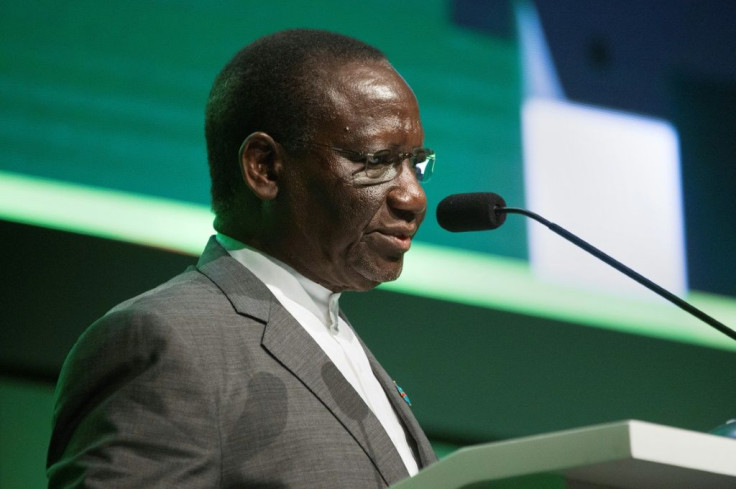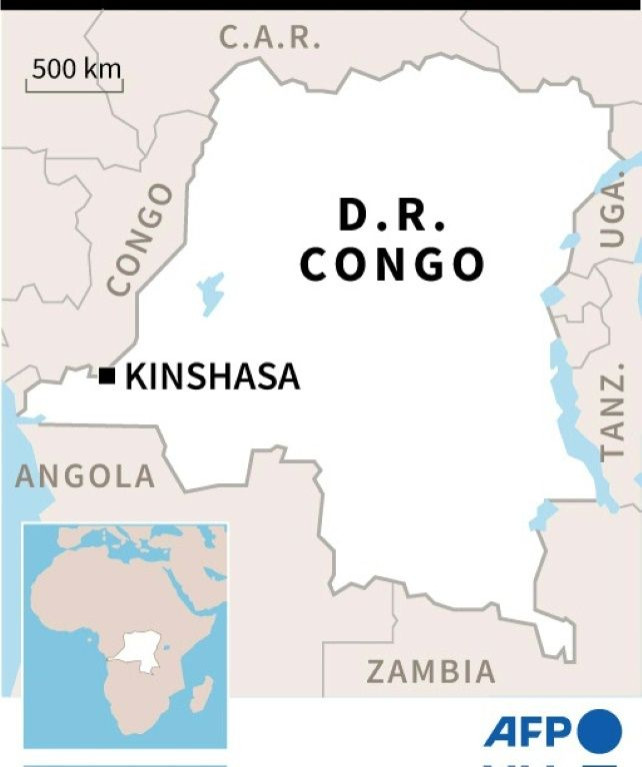DR Congo PM Resigns, Allowing President To Name Own Premier
DR Congo's prime minister Sylvestre Ilunga Ilunkamba resigned on Friday, the presidency said, a move enabling President Felix Tshisekedi to appoint his own premier supported by a new parliamentary majority.
Presidency spokesman Giscard Kusema told AFP that Illunga "said he had drawn the consequences of the developing political situation."
Ilunga was constitutionally required to resign after being censured by the National Assembly on Wednesday.
He is a close ally to former president Joseph Kabila whose supporters have tussled with Tshisekedi since he took office two years ago.
Kusema said it was "too soon" to say when Tshisekedi would appoint the next prime minister.

The presidency confirmed Ilunga's departure on Twitter.
Ilunga, 73, had been appointed by Tshisekedi in May 2019 under a power-sharing deal that he and Kabila struck when handing over the presidency -- the first peaceful transition in the Democratic Republic of Congo's history.
Kabila's decision to step down after 18 years in office opened the way to elections in December 2018 that were controversially won by Tshisekedi, the son of a veteran opposition leader backed by the United States and Europe.
But on the same polling day, a strong pro-Kabila majority emerged in the National Assembly, preventing Tshisekedi from having a grip on all the political levers of power.

Tshisekedi, 57, was forced into a coalition -- a leviathan of a government with 65 ministers, two-thirds of whom were from the pro-Kabila Common Front for the Congo (FCC).
Tensions swiftly grew and erupted into the open last October when Tshisekedi appointed three judges to the Constitutional Court, the highest judicial authority in DRC.
As the row escalated, Tshisekedi declared his reform agenda was being blocked and launched three-week national consultations to seek a way out of the impasse.
On December 6, he announced the end to the coalition.
He said he planned to seek a new government supported by the National Assembly, a move that sparked brawls in parliament.

On Wednesday, a motion of censure against Ilunga and his government was approved by 367 out of 377 MPs present in the 500-seat legislature.
Tshisekedi's proposed group, called the Sacred Union of the Nation, wields support from 391 lawmakers, according to an envoy, Senator Modeste Bahati, who was appointed to try to forge a majority.
The change in loyalties came in part through Tshisekedi's threat to dissolve the chamber, but also through time-honoured promises of favours, according to rumours.
Ilunga on Wednesday angrily said he did not recognise the authority of the assembly's provisional bureau, which oversees legislative affairs, to organise a censure vote.
In a statement on Thursday, he reiterated that criticism, but said, "I am bound to recognise the competence of the National Assembly to examine the motion of censure" as the motion had been previously signed by 301 MPs.
A vast country the size of continental western Europe, the DRC has a notorious reputation for corruption, poor governance and inequality, despite its mineral riches.
Tshisekedi campaigned on promises to change this and improve the country's poor record on human rights, but until now he has been to a large degree overshadowed by the figure of Kabila.
Still only 49 years old despite his long years in office, the ex-president retains extensive clout through allies in politics, the military and business.
He took the helm of the country in 2001, succeeding his father, Laurent-Desire Kabila, who was assassinated by a bodyguard.
Today, he lives in Lubumbashi, in the eastern economic hub of Katanga, with a small group of loyalists.
Two heavyweights who now support Tshisekedi are Moise Katumbi, a tycoon from Katanga, and Jean-Pierre Bemba, a former warlord with a large following in Kinshasa and the west of the country.
Bemba's party, the Congo Liberation Movement, "has officially joined the Sacred Union of the Nation," one of the party's leaders, Mohamed Bule, said.
"Our two leaders, Moise Katumbi and Jean-Pierre Bemba, have decided to work in synergy," he added.
Analysts, however, cautioned that Tshisekedi will have to juggle with the ambitions of these powerful men, who are bound to demand senior positions in the government and parliament.
An early test will come next week, in elections to the assembly's bureau, which shapes parliamentary business, they said.





















